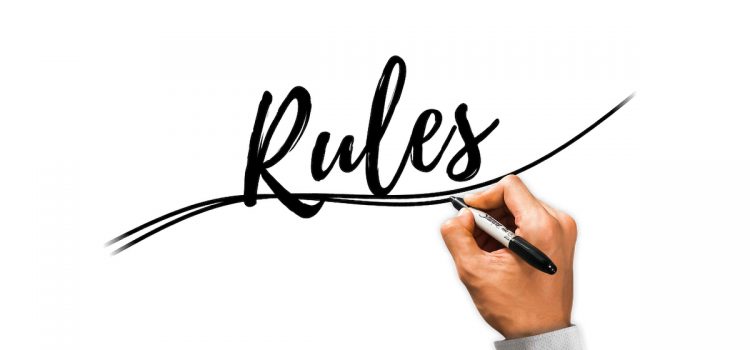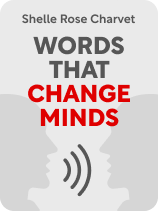

This article is an excerpt from the Shortform book guide to "Words That Change Minds" by Shelle Rose Charvet. Shortform has the world's best summaries and analyses of books you should be reading.
Like this article? Sign up for a free trial here.
What rules do you have for yourself? What expectations do you have for the people in your life?
In Words That Change Minds, Shelle Rose Charvet’s Rule Structure describes the behavioral standards that someone expects themselves and others to meet. We’ll compare her Rule Structure with Gretchen Rubin’s Four Tendencies.
Continue reading for an insightful discussion about personal standards.
Personal Standards
According to Charvet, people can have one of four possible types of personal standards: objective, subjective, external, and egocentric. People with objective standards believe that certain behavior is objectively virtuous and desirable, judging everyone’s work (including their own) by the same criteria. In contrast, people with subjective standards believe that what’s good for one individual might not be good for another, and they tend to avoid judging or intervening in the behavior of others.
People with external standards need someone or something to tell them what behavior is appropriate or objectively good. They then apply these rules as objective standards for themselves and others. Finally, people with egocentric standards do whatever they believe is best and completely disregard the behavior of others. They also disregard whatever standards others have for them.
Charvet recommends discerning someone’s personal standards by directly asking them how they would ideally behave at work, then asking how someone else should ideally behave at work. To influence someone, appeal to their personal standards. For example, if someone has subjective standards, you might say, “Attending this leadership conference might not benefit everyone, but I think it would serve you well.”
| Comparing Personal Standards to The Four Tendencies In The Four Tendencies, Gretchen Rubin outlines a similar system, profiling four different ways that people relate to personal standards. Rubin goes into more depth than Charvet on the topic of influencing people based on their personal standards—we’ll explain her strategies for each tendency. Charvet’s concept of external standards closely aligns with the personality type Rubin calls the “Obliger.” Obligers fulfill the expectations of others but ignore any expectations they have for themselves. Rubin notes that Obligers are prone to burnout—they strive to fulfill so many external expectations that they exhaust themselves and lose the ability to fulfill any expectations. Thus, when you influence an Obliger, be careful not to overload them with too many requests. Charvet’s egocentric standards and Rubin’s “Rebel” tendency are similar in that it’s extremely difficult for other people to influence their behavior. Rebels defy both internal and external expectations—they do whatever they feel like and resist telling themselves that they “have to” do anything. If you need to influence a Rebel, Rubin recommends convincing them that following your expectation was their idea. To do this, you can present them with the negative consequences of not following your expectations, prompting them to choose to avoid those consequences. Charvet’s subjective standards align with Rubin’s “Questioner” tendency. Questioners set standards for themselves and challenge any external expectations placed on them. Both types of people resist when others tell them what to do. However, unlike Rebels, Questioners will heed your advice if you convince them logically that your expectations make sense. Finally, Charvet’s objective standards and Rubin’s “Upholder” tendency are similar in that they prefer to do things the single “right way.” Upholders try to be the best they can be by meeting their own ambitious internal expectations as well as everyone’s external expectations. Because they try to do everything “perfectly,” Upholders sometimes struggle to prioritize the most important expectations. When trying to convince an Upholder, take care to emphasize which of your requests matter the most and they’ll fulfill those gladly. As with Charvet’s personal standards, Rubin explains that you can identify someone’s tendency by asking them questions. She prefers more indirect questions than Charvet—for example, she says that if you ask someone how they feel about New Year’s Resolutions, their response and corresponding logic will reveal their tendency. |

———End of Preview———
Like what you just read? Read the rest of the world's best book summary and analysis of Shelle Rose Charvet's "Words That Change Minds" at Shortform.
Here's what you'll find in our full Words That Change Minds summary:
- Why it's sometimes hard to understand what others are trying to say
- The 14 kinds of mental habits that explain how people think
- How to understand others better and build positive relationships






